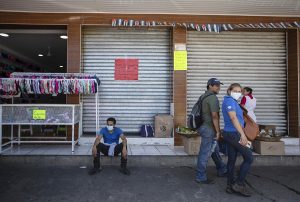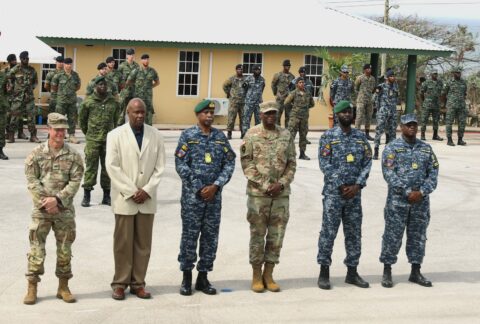Nicaragua’s economy contracted 10 percent in the last two years, and is expected to continue its decline due to the endless socio-political crisis. Furthermore, the coronavirus (COVID-19) impact could hasten the economy’s collapse, says nongovernmental organization Nicaraguan Foundation for Economic and Social Development (FUNIDES, in Spanish) in its report Economic Impact of COVID-19 in Nicaragua.
FUNIDES says that possible effects would include a drop in the demand for exports, which would affect the country’s revenues. The report foresees a decline in remittance and foreign investment, as well as fewer tourist arrivals. The effects would occur at a time when the economy is in its third year of recession.

“In order for the country to adequately confront the coronavirus pandemic, the state must seek a negotiated solution to the political-social crisis that the country is going through since April 2018, to regain confidence in democracy, improve economic activity, and restore cooperation with other nations,” Mario Arana, head of the American Chamber of Commerce in Nicaragua, told Diálogo. Vice President Rosario Murillo announced the first COVID-19 positive case in the country on March 18.
No country will be able to combat the pandemic without global and regional cooperation, said the United Nations Economic Commission for Latin America and the Caribbean. COVID-19 will have devastating effects on the world’s economy, and these effects will surely be more intense and different than those of the global financial crisis of 2008-2009, hitting Latin America harder, says FUNIDES.
As of 2020, the Nicaraguan economy has been falling for two years: 5.7 percent in 2019, and 3.8 percent in 2018, says the International Monetary Fund. “During this time, the economy regressed eight years,” Néstor Avendaño, head of the Nicaraguan company Consultores para el Desarrollo Empresarial (Business Development Consultants), told Diálogo.
The World Bank and the Inter-American Development Bank report that they have not granted new resources or signed new contracts for Nicaragua to fund their public investment programs or their balance of payments. The FUNIDES report also says that the coronavirus will cause increased unemployment and a higher poverty rate.
“More than 1.4 million people cannot generate income in the country. If the recession worsens, an economic depression might be declared in Nicaragua,” Avendaño says. “Meanwhile, the tourism sector, followed by those of construction, commerce, and finance, will suffer the effects of the crisis and the country’s bad image,” Arana added.
The Nicaraguan Micro, Small, and Medium-sized Enterprise Council estimates that more than 1,000 companies closed their doors in 2018 and 2019. The coronavirus will be another blow to tourism, Lucy Valenti, head of the Nicaraguan Tourism Chamber, told Voice of America.
“The creative, democratic, and victorious economy that is promoted in Nicaragua helps the country move forward,” said Murillo about the crisis.
“The regime, which proclaims itself as ‘Christian, socialist, and in solidarity,’ does not prioritize human beings, not even the economy, but only collecting taxes and fueling the extortion scheme that keeps public finances afloat to fund the payroll of repression,” Nicaraguan journalist Carlos F. Chamorro wrote in an editorial for the Spanish newspaper El Diario.
“The Sandinista leader shows no interest in addressing urgent problems, such as the coronavirus pandemic and peace in the country. There will not be an economic negotiation without solving the political problem,” Arana concluded. “Ortega is not capable of helping the economy recover or in governance.”









